Great women of Rome
Our Hotel Alpi is a female hotel, we have reached the third generation of women in the management of our Boutique Hotel a stone’s throw from Termini station. Precisely for this reason, in celebrating World Women’s Day, we want to make our small contribution to the area that belongs to us most, that of Rome and its history. This is because in some way, as hoteliers, we feel also ambassadors of our city in the world.
The history of Rome is dotted with great women who have marked the life of the city and in some way Western culture. Skilled, passionate, some cruel and ambitious, powerful, you could read about their adventures for years on end. Here we want to remember just a few, among the brightest and most fascinating, women who have left their mark in Rome.
Livia (Drusilla) – 58 BC – 29 AD
Let’s start with an important woman, the first Empress of Rome, or rather Augusta: Livia. She was very intelligent and witty, she was also very ambitious, so much so that she divorced her first husband and married Ottaviano. Her marriage to the emperor, Caesar’s adopted son, also united the two most powerful families in Rome, the gens Giulia (Caesar’s) and the gens Claudia. It is said that there was a relationship between the two even before the marriage and that Livia’s house, on the Palatine, was connected by a tunnel to that of Augustus, a short distance away. It was a long and loving marriage. She had achieved, even as Octavian’s wife, honors never experienced before, including the Sacrosantitas, anyone who had offended or damaged her could even have been executed.
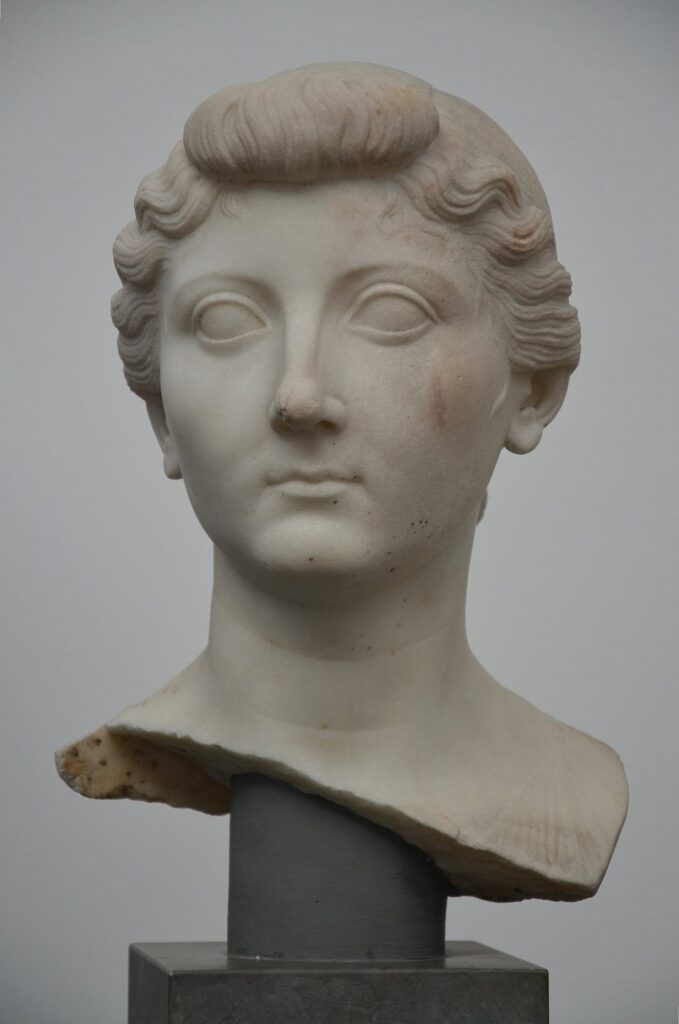
Messalina (Valeria Messalina 25d.c. 48 d.c.)
Even today, 2000 years later, in Rome her name, Messalina, is synonymous with lust and cunning. She was beautiful and very educated, she also had the reputation of being «vicious», which is why she deserved the nickname «Meretrix Augusta». Her brother, Caligula, forced her to marry Claudius who became emperor two years after her marriage. She had two children with Claudius, Claudia Ottavia and Britannicus, who gave her the name Great Britain. During the reign of Claudius, Messalina became the female symbol of the three deadly sins: Lust, Cruelty and Greed. Following her last great betrayal towards her husband the Emperor, Messalina was killed on his orders. 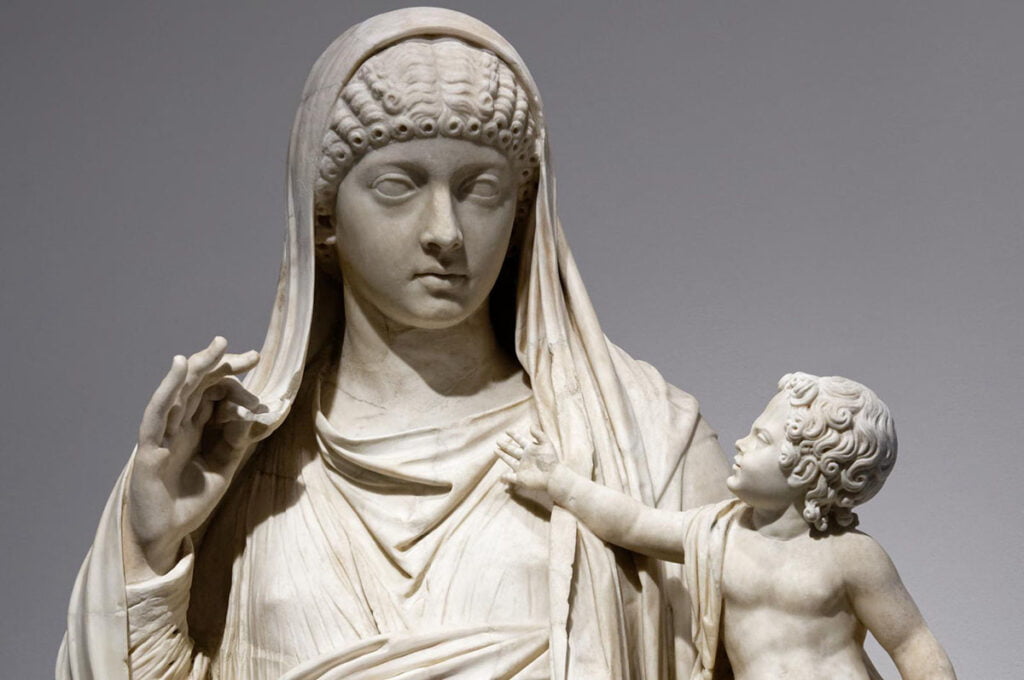
Agrippina (Minor 15 AD 59 AD)
Ambitious and powerful, Agrippina was a central figure in Roman political life during the 1st century AD. After an unhappy first marriage, which gave her son Nero, she Agrippina married Claudius, becoming one of the most powerful women in Rome. Charismatic and shrewd, she managed to conquer the Roman Senate, and later, thanks to her intelligence, she became Augusta with marriage. She also managed to have Claudio adopt her son Nero, with whom she had a very close relationship. YES it is said about her that it was she who guided her son who had just become emperor, until, after Nero’s marriage to Poppea Sabina, she was removed from the palaces and finally murdered, precisely on the orders of her son. & Nbsp;
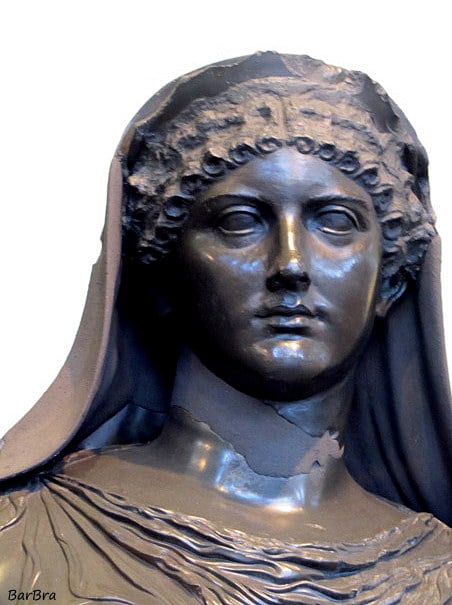
Artemisia Gentileschi 1593 – 1656
A courageous woman, Artemisia’s story seems like that of a woman these days. Equipped with a great talent for painting, her father had her followed by a famous painter of the time, we are talking about the early 1600s. However, after trying to have a relationship with her, he raped her, throwing Artemisia into despair and, following a long and famous trial, dishonoring her. Despite the fact that the story was now in the public domain, Artemisia managed to never lose her dignity and to rebuild her life once the trial was over, with essentially nothing done for the rapist. Artemisia made a new life for herself in Florence, where she frequented the Medici court and became friends with Galileo Galilei and Michelangelo Buonarroti il Giovani, nephew of the famous Michelangelo. In 1616 she was admitted to the Accademia del Disegno in Florence, where she remained enrolled until 1620.
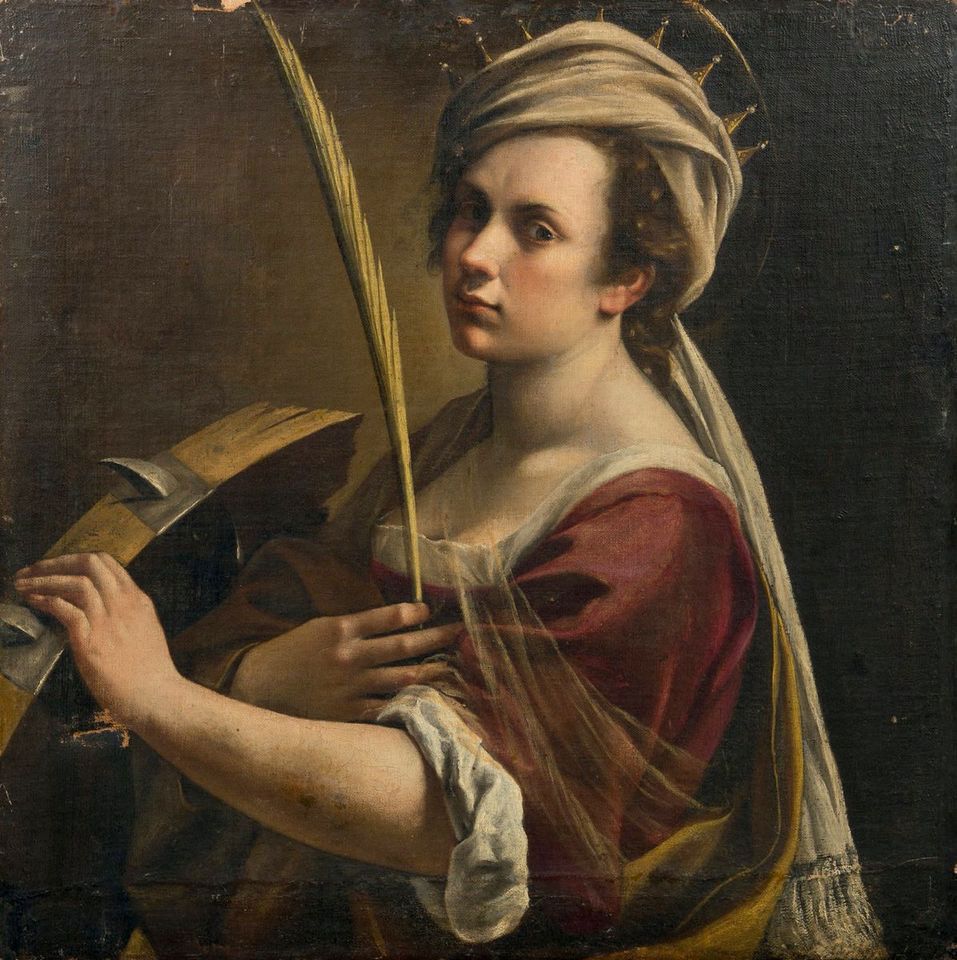
Santa Francesca Romana — Francesca Bussa de’ Leoni
she Born in 1384 in Rome, she married Lorenzo de’ Ponziani and lived a devout life. After her husband’s death, she founded the congregation of the Oblates of Mary, dedicated to caring for the sick. She had mystical visions and dedicated her life to prayer and helping others. She is venerated as a saint by the Catholic Church for her charity and spirituality. She died in 1440 and was canonized in 1608. Even today in Rome the name Francesca Romana is very common, a sign that the city has never forgotten the good works that the woman and, later the saint, carried out in Rome. < /P>
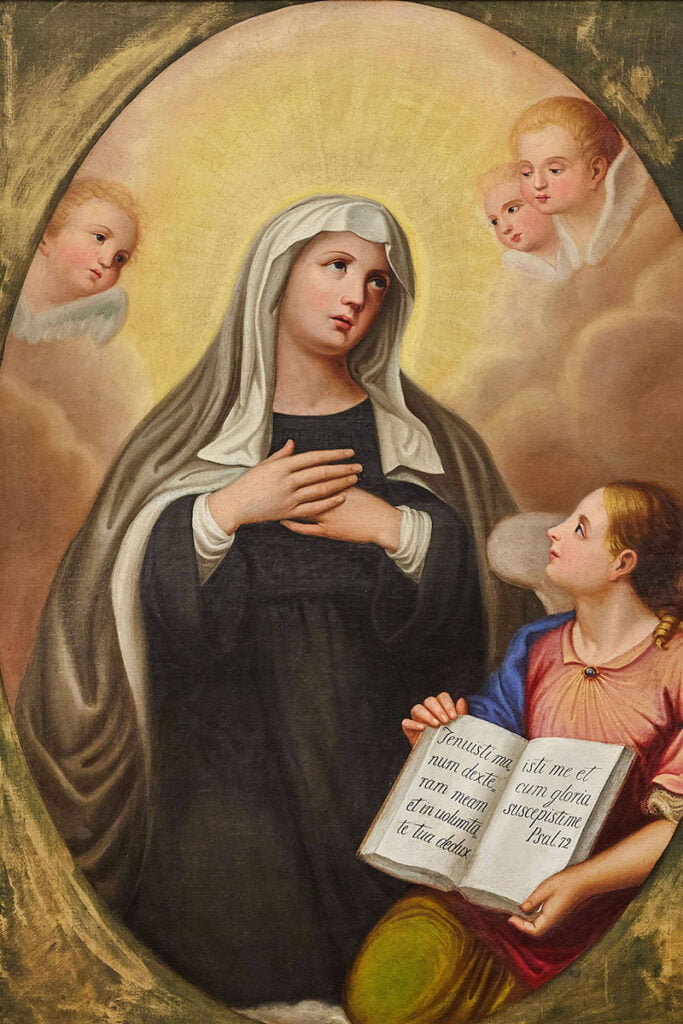
This is Hotel Alpi’s homage to some of the most important women of Rome, on the day that celebrates women all over the world.

